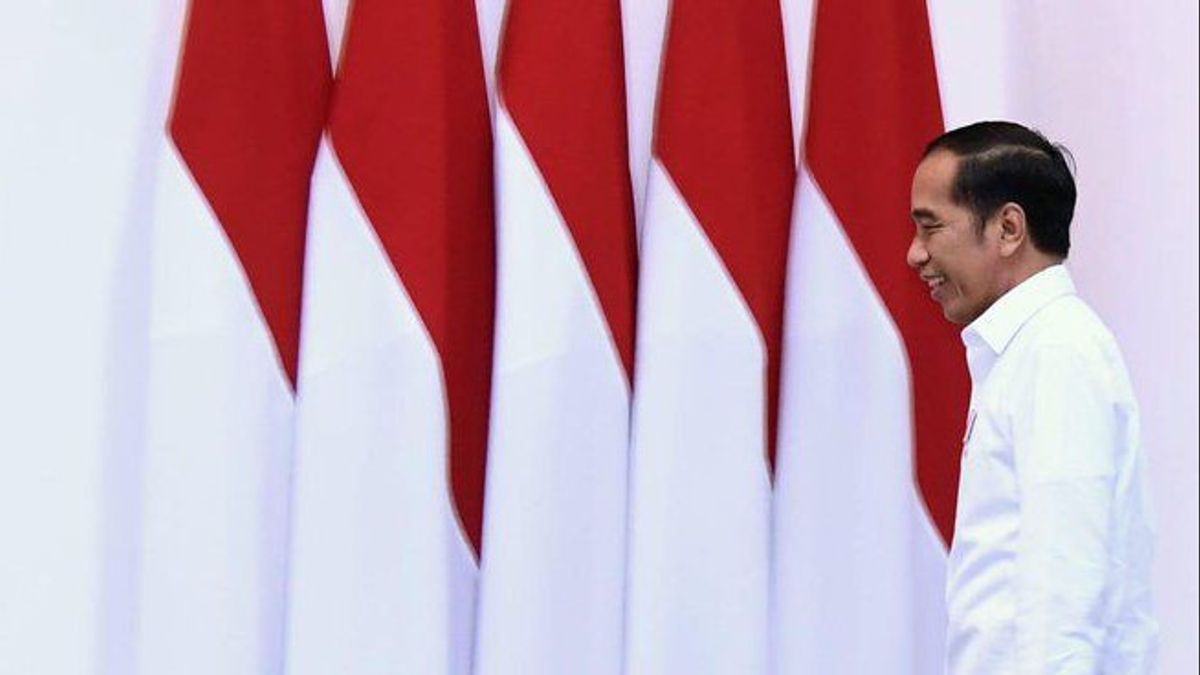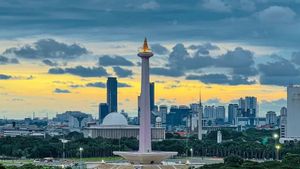JAKARTA - A student of SMKN 57 Jakarta asked President Joko Widodo about the possibility of a death penalty for criminals. The student asked Jokowi who came to his school after watching the drama Performance Without Corruption at SMKN 57, Jakarta, Monday, December 9.
Jokowi answered that the death penalty for corruptors has been regulated in Law Number 31 of 1999 as amended in Law Number 20 of 2001 concerning Corruption Eradication, but its application is not arbitrary.
"If corruption is a natural disaster, it is possible. If not, no. For example there is an earthquake, tsunami, in Aceh, or in NTB we have a budget for disaster management, the money is corrupted, it can be (sentenced to death)," said Jokowi in response to the death penalty for corruptors, adding that no corruptors have been sentenced to death.
After this event, Jokowi was asked by journalists about the possibility of the death penalty being applied to all corruptors. Jokowi said that this could have been done as long as there was encouragement from the community to change the law.
"If the public wishes like that in the draft of the Corruption Crime Law (death penalty) it is included. But once again it also includes [the will] in the legislature (DPR)," he added.
Minister of Law and Human Rights (Menkumham) Yasonna H Laoly said the application of the death penalty for perpetrators of corruption is still at the discourse level. Even though the regulation exists, he said it has not been implemented.
"What is possible is (the death penalty) for people who commit corruption against natural disasters, but in practice there has been (disaster-related corruption) in the Lombok earthquake, there have only been such cases and (death penalty) is the maximum threat," he added. Yasonna.
The PDI-P politician added that perpetrators of corruption related to natural disasters were not immediately threatened with the death penalty. Because there must be a clear consideration in giving the death penalty.
"If it is a natural disaster, but he is corrupt Rp10 million? There are variables that must be considered, for example, there is a natural disaster fund of Rp100 billion, he swallowed Rp.25 billion, that was a third of him being killed, that's another story," said Yasonna.
Political observer Universitas Airlangga Pribadi does not agree with the death penalty, including for perpetrators of corruption. Because according to him, the death penalty means weakening the principle of the law itself. Also, he questioned when the death sentence was carried out, but later it turned out that evidence was found that the convict was innocent, or if he was guilty but did not deserve the death penalty, how to fix it?
"Instead of the death penalty, because it is corruption, it is better to encourage a deterrent effect. The method is discounted or a sentence that has social effects other than the long term prison sentence," said Airlangga when contacted by VOI, Tuesday 10 December.
For your information, Article 2 of Law Number 20 of 2001 concerning Eradication of Corruption Crimes, reads as follows:
Section 2
(1) Every person who illegally commits an act of enrichment for himself or another person or corporation which can cause losses to the state finances or the country's economy, shall be sentenced to imprisonment for life or imprisonment for a minimum of 4 years and a maximum of 20 years and a minimum fine. IDR 200 million and a maximum of IDR 1 billion.
(2) In the event that the criminal act of corruption as referred to in paragraph (1) is committed under certain circumstances, the death penalty may be imposed.
The explanation of paragraph (2) is as follows:
What is meant by 'certain conditions' in this provision is meant as a deterrent to the perpetrator of the criminal act of corruption if the criminal act is committed when the state is in a state of danger in accordance with the prevailing law, when a national natural disaster occurs, as a repetition of the criminal act of corruption. or when the country is in a state of economic and monetary crisis.
The English, Chinese, Japanese, Arabic, and French versions are automatically generated by the AI. So there may still be inaccuracies in translating, please always see Indonesian as our main language. (system supported by DigitalSiber.id)










